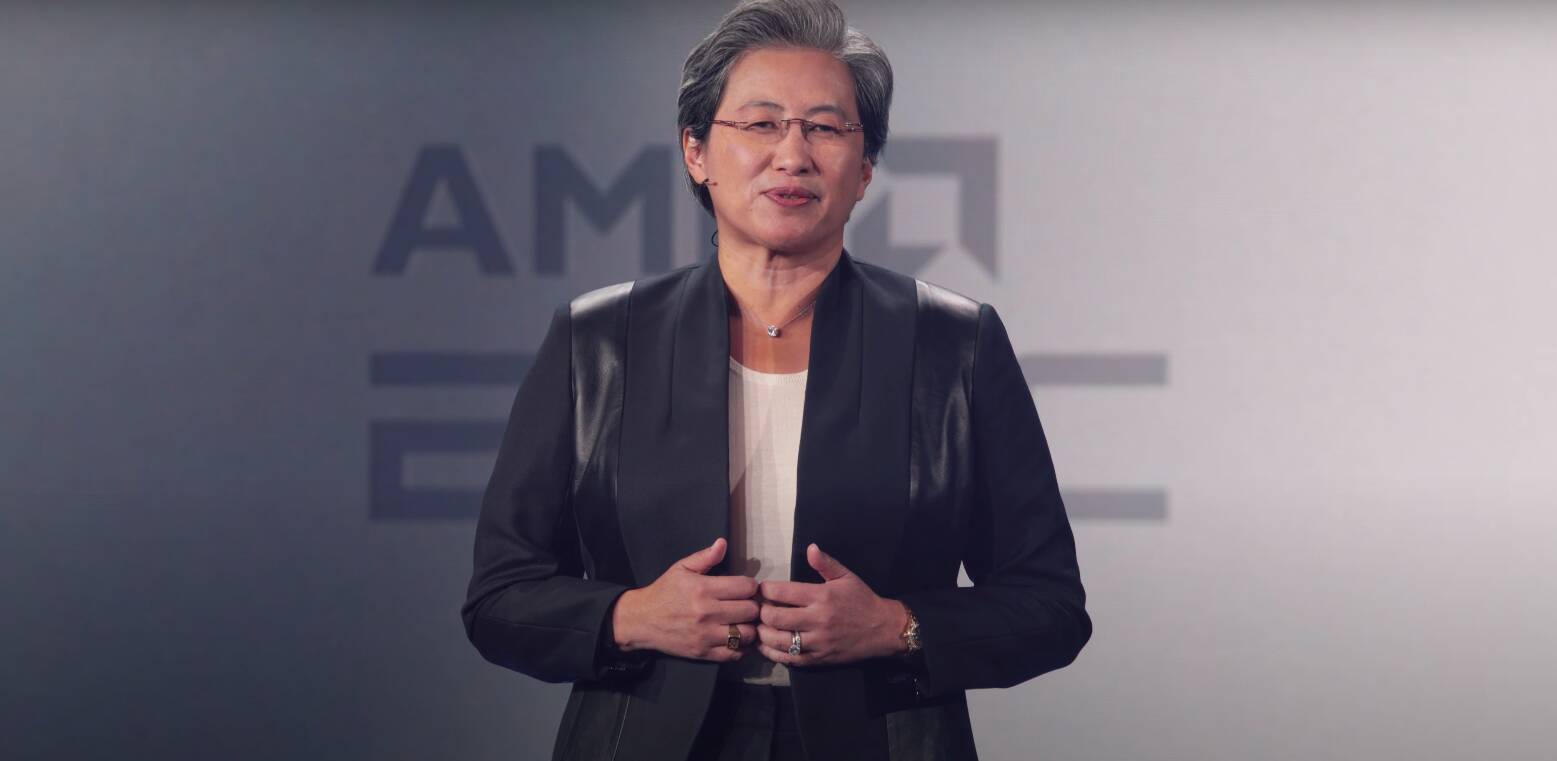AMD's EPYC Server Chips Give Strong Revenue Growth, But Profits Drop 98%

Intel's pain is apparently AMD's gain as the chip design company looks to steal more share from its long-time rival in 2023.
"We have an opportunity to move workloads to AMD as we go through the year," AMD CEO Lisa Su told analysts during the company's Q4 earnings results call Tuesday. "We feel very good about our product positioning."
That's a nod to AMD's EPYC datacenter-centeic CPUs boasting specs that make Intel's latest Xeons look expensive and a little off the pace.
While AMD continues to compete for server buyers, it must also weather the current economic superstorm which continue to squeeze its PC and gaming divisions.
For the fourth quarter, AMD maintained robust growth, with revenues up 16 percent year over year to $5.6 billion. That gain was in stark contrast to Intel's a $700 million net loss on revenues that plunged 32 percent.
While Intel faced declines across all of its core business units, AMD's datacenter and embedded business units — fueled in large part by strong cloud demand for the chipmaker's EPYC processor family — once again did most of the heavy lifting during the quarter, massing $3.1 billion revenues.
- US Department of Energy solicits AMD's help with nuke sims
- After less than half a year, Intel quietly kills RISC-V dev environment
- Intel inside a world of pain as revenue plunges by a third
- Intel chairman exits just ahead of next financial report
"In North American hyperscalers more than doubled year over year as hyperscale customers continued moving more of their internal workloads and external instances to EPYC processors," Su said.
While the chipmaker's datacenter CPUs continued to perform well, demand for the company's MI200-series GPUs were down, the CEO admitted. According to Su, the this was due in part to high demand in Q4 2021 from supercomputing vendors for its MI250X GPUs which powered the 1.2 exaflop Frontier machine at Oak Ridge National Laboratory.
Su also touted strong demand from the financial services sector for AMD's Alveo X3 FPGAs. FPGAs are commonly employed in high frequency trading environments where ultra-low latency is required.
AMD once again saw weak PC and gaming demand during the fourth quarter. Its client revenues declined 51 percent year over year to $903 million. Meanwhile, the company's gaming segment, which also includes sales of custom silicon used in Sony and Microsoft game consoles, fell seven percent to $1.6 billion.
The mixed quarter saw AMD's net income continue to evaporate, falling 98 percent from $974 million this time last year to $21 million in Q4. The acquisition of FPGA maker Xilinx early in 2022 were blamed for the decline.
For the 2022 fiscal year, AMD still managed to grow revenues 44 percent to $23.6 billion. For reference Intel netted $63 billion in 2022 revenue.
Looking ahead to the 2023 fiscal year, AMD is expecting a slower ramp as the company enters what's traditionally been a post-holiday slow period and economic conditions dampen demand for PC and gaming kit.
The chipmaker projects revenues to decline roughly 10 percent during the first quarter of 2023 at $5.3 billion plus or minus $300 million. Datacenter and FPGA products are expected to dominate sales. Intel has predicted at best a 37 percent decline in revenues in Q1.
Su expects the company's fortunes to improve some in the second half of the year as demand improves. ®
From Chip War To Cloud War: The Next Frontier In Global Tech Competition
The global chip war, characterized by intense competition among nations and corporations for supremacy in semiconductor ... Read more
The High Stakes Of Tech Regulation: Security Risks And Market Dynamics
The influence of tech giants in the global economy continues to grow, raising crucial questions about how to balance sec... Read more
The Tyranny Of Instagram Interiors: Why It's Time To Break Free From Algorithm-Driven Aesthetics
Instagram has become a dominant force in shaping interior design trends, offering a seemingly endless stream of inspirat... Read more
The Data Crunch In AI: Strategies For Sustainability
Exploring solutions to the imminent exhaustion of internet data for AI training.As the artificial intelligence (AI) indu... Read more
Google Abandons Four-Year Effort To Remove Cookies From Chrome Browser
After four years of dedicated effort, Google has decided to abandon its plan to remove third-party cookies from its Chro... Read more
LinkedIn Embraces AI And Gamification To Drive User Engagement And Revenue
In an effort to tackle slowing revenue growth and enhance user engagement, LinkedIn is turning to artificial intelligenc... Read more

